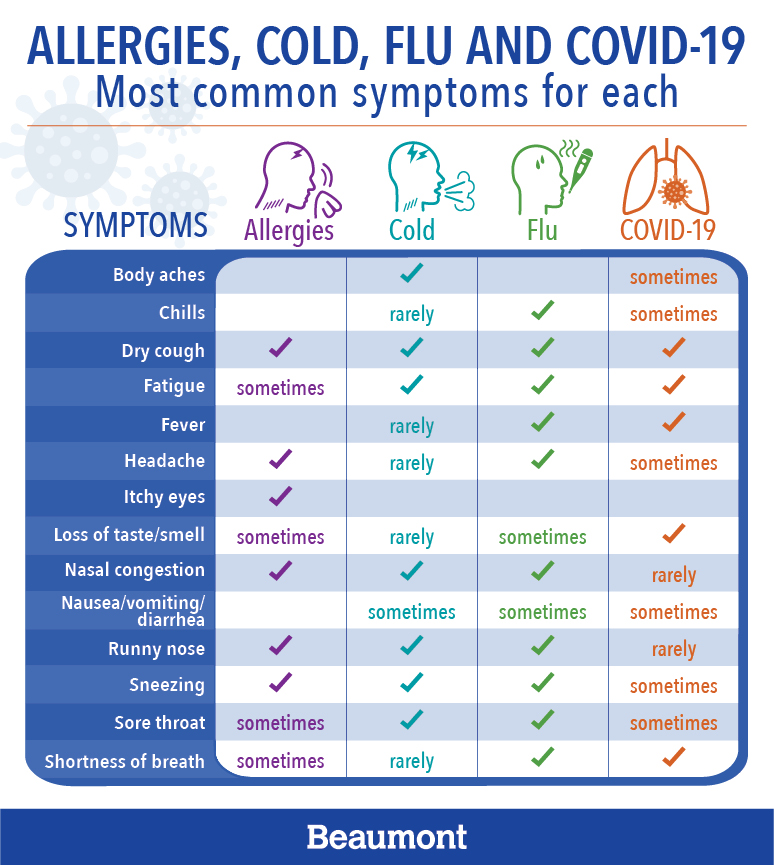
Can Allergies Be A Sign Of Covid 19. According to the Centers for Disease Control and Prevention CDC COVID-19 symptoms include shortness of breath cough and a fever. Still they share many cold-like symptoms from a runny nose to congestion and shortness of breath. Other symptoms of COVID-19 not characteristic of allergies are body aches nausea vomiting and diarrhea. If You Are Allergic to an Ingredient in a COVID-19 Vaccine.

Allergies other than the sinus headaches. While a dry cough is common in both seasonal allergies and COVID-19 a cough related to an itch or tickle in your throat is most likely due to seasonal allergies. How to tell the difference between allergy and COVID-19 symptoms. If youre one of the many who suffers during spring allergy season it can be tough to tell if youre facing a serious virus or just a case of seasonal sniffles. While upper respiratory symptoms can be signs of COVID-19 or allergies fever and gastrointestinal symptoms are unique to COVID and itchy eyes and sneezing are unique to allergies. According to the Centers for Disease Control and Prevention CDC COVID-19 symptoms include shortness of breath cough and a fever.
While allergies are nothing to sneeze at COVID-19 is typically far worse.
He says the majority of COVID-19 cases that show symptoms include a fever. According to the Centers for Disease Control and Prevention CDC COVID-19 symptoms include shortness of breath cough and a fever. He says the majority of COVID-19 cases that show symptoms include a fever. An immediate allergic reaction happens within 4 hours after getting vaccinated and could include symptoms such as hives swelling and wheezing respiratory distress. While upper respiratory symptoms can be signs of COVID-19 or allergies fever and gastrointestinal symptoms are unique to COVID and itchy eyes and sneezing are unique to allergies. You just dont get fevers from allergies like you do with the flu COVID-19 or the common cold Kobernick says.